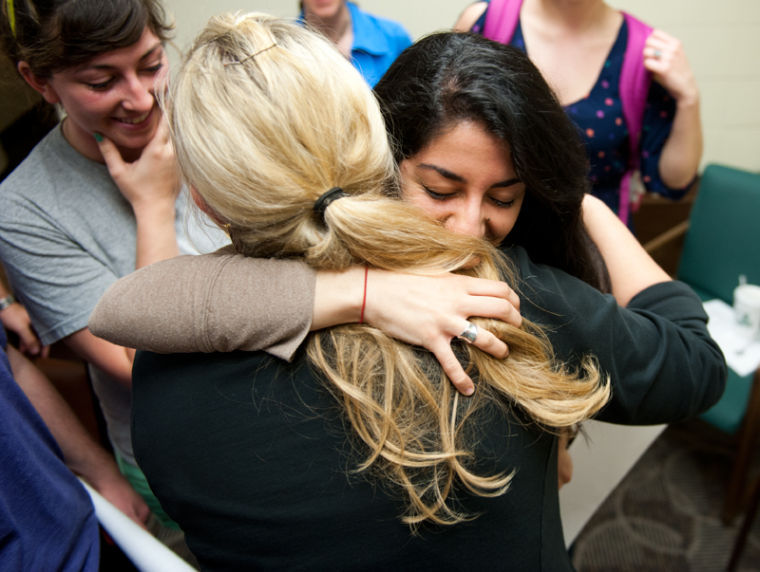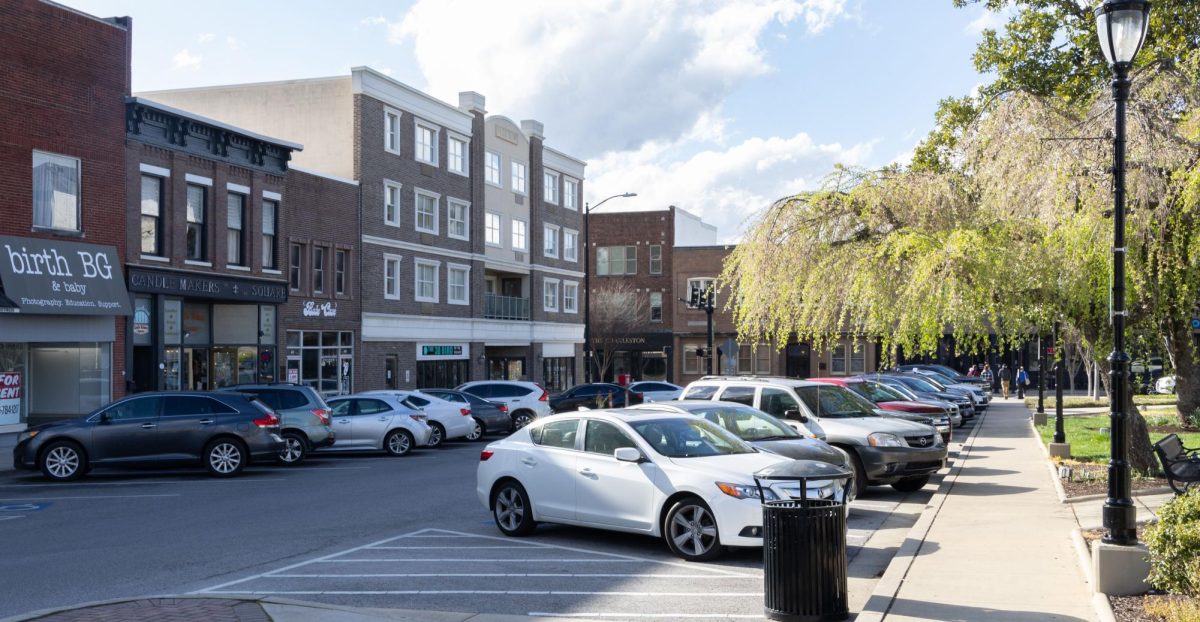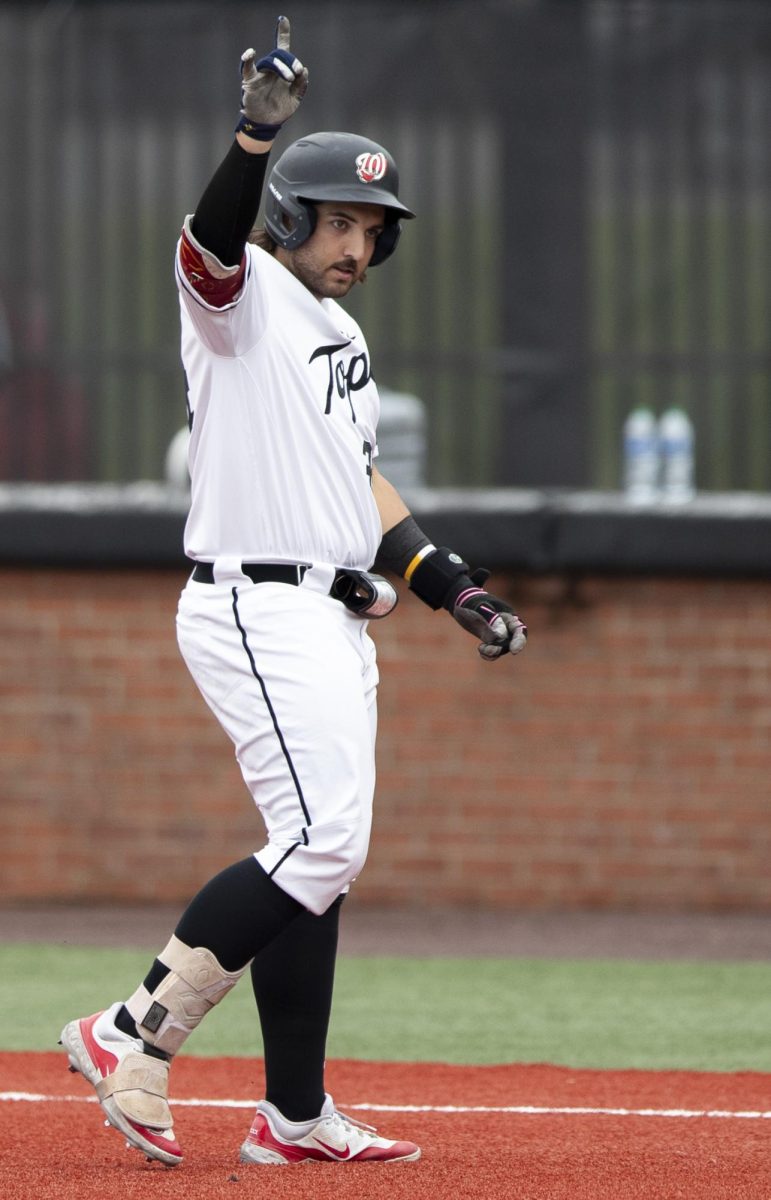SGA Drama ‘Settled’: What does Bailey’s ruling mean for the future of SGA?
April 12, 2013
When asked about the recent upheaval with WKU’s Student Government Association’s presidential elections, President Gary Ransdell said he stayed out of it.
Ransdell said he didn’t weigh in on Vice President for Student Affairs Howard Bailey’s decision to reinstate SGA’s President-elect Keyana Boka after she was disqualified, but that he believed Bailey followed the SGA bylaws.
“I understand the logic of the debate,” Ransdell said. “But when it comes down to the interpretation of the SGA bylaw, you have to draw a pretty strict interpretation of the bylaw, and I think that’s what Vice President Bailey is doing.”
Boka’s disqualification was the ruling of SGA’s Judicial Council after they found her guilty of self-promotion through email, a violation of the election code.
Section 3.8 of the code states, “No candidate shall use any mail, electronic or physical, for self-promotion during the election.”
On April 2, the first day of the elections, the Judicial Council held a private meeting to decide Boka’s eligibility after Destiny Savage, a graduate assistant with the Honors College, sent out an email to honors students encouraging them to vote for honors candidates, at Boka’s request.
During this meeting, at which Boka was not present, she was disqualified.
The email mentioned Boka, Nicki Seay and Brad Cockrel. Seay was running for administrative vice president; Cockrel was running for executive vice president.
Seay said she was unaware of Boka’s request until she saw the email. Due to this, both Seay and Cockrel were never brought before the Judicial Council to contest their eligibility.
To give Boka a chance to explain herself in person, a second closed meeting was held on April 3, where Boka was deemed eligible. But Cain Alvey, administrative vice president who was also running for president, said those meetings did not comply with Kentucky’s Open Meetings Law.
SGA Chief Justice Seth Church said the shift in opinion between the first and second closed meeting was because Boka attended the second meeting. He said hearing Boka’s side of the story might have swayed the vote.
The final Judicial Council meeting was held Monday and was open to the public. The council gave their final opinion, that Boka was disqualified from the election by a 3-2 vote — making Alvey the new president-elect of SGA.
“I feel like the third meeting we held, both parties were there, everything was held as it should have been and I think that the decision that came out of that is the most accurate reflection of the opinion of the Judicial Council,” Church said.
Twenty-four hours later at SGA’s weekly meeting, a memorandum from Bailey reinstated Boka.
A precedent
Ransdell said this is the first time he can recall a judicial decision from the SGA being overturned by an administrator. But, he said there have been other problems.
“We’ve had student body presidents that have been asked to step aside,” Ransdell said.
For example, former SGA Presidents Robert Watkins and Johnathon Boles both resigned from their posts.
In fall 2006, Watkins resigned from SGA because student senators thought he wasn’t fulfilling his presidential duties, according to a Herald article of that year.
Charley Pride, director of Student Activities, said Watkins narrowly avoided impeachment.
“We came really close, actually,” Pride said. “We had a group of students that wanted to impeach a president, and the president quit before that happened.”
Boles resigned in January 2009. In his letter of resignation to SGA, Boles said he was facing, “several personal and health related issues” that wouldn’t allow him to continue his term.
Pride said that not fulfilling academic requirements was a factor in Boles’ resignation.
With the knowledge of SGA’s occasional issues, Boka said her situation could have been worse.
“There have been even messier situations with elections that have happened in the past,” she said.
Yet, SGA President Cory Dodds said an administrator making the final decision about the next president-elect sets a “dangerous precedent.”
The reaction
Church said he was disappointed and surprised with Bailey’s decision to intervene.
“Howard is the vice president of Student Affairs, and the SGA is a branch of Student Affairs,” he said. “But I think with the SGA as a student organization, we should be trusted enough to make responsible decisions…based on our own rules.”
Louisville sophomore Laura Harper, an SGA senator-at-large, said she wasn’t sure why the Judicial Council’s third, and final, decision wasn’t respected.
“It hurts our integrity as an organization that we can’t have everybody just play fairly and listen to, you know, what’s supposed to be the final word, whatever that may be,” she said.
Mark Reeves, SGA’s executive vice president-elect, also said Bailey’s memorandum was unwelcome.
“Honestly, it was very disturbing to me for university administration, an official in university administration, to essentially, enter into or you know, intrude onto SGA deliberation,” he said. “I think that sets a really bad precedent.”
Reeves said he would have felt the same way regardless of which presidential candidate won — even though he was Alvey’s running mate.
Alvey originally made the decision to file an appeal against Boka upon hearing about the email that the Honors College sent out, before the election results were revealed.
“I believed that it was a violation of the election codes, and I wanted to ensure that the presidential election was fair and according to the election codes,” Alvey said.
He said the whole experience has been stressful for many of the members of SGA.
“It’s been very stressful, and I’m sure it has been for Keyana as well,” he said. “My main reason for doing all this was to make sure the election was fair, and the best way to do that was to bring up the issue to judicial.”
But Alvey said he still plans to stay involved with SGA in every way that he can.
“I still have two years left at WKU, and I want to do all that I can to help the student body during those two years,” he said.
Bailey said he made the decision to overturn the judicial students of SGA because it is his responsibility as the official advisor of SGA.
Although Bailey said he knew all three presidential candidates, it absolutely did not have an influence on his decision to overrule the judicial students.
He also said there have been similar situations to this one with SGA in the past.
“I’ve encountered some disputes over some elections,” Bailey said.
One of those disputes was over a past policy that the presidential candidate of SGA had to also be a Kentucky resident in order to be a student regent. The laws have since changed.
Taking sides
Although Dodds said he remained neutral during these judicial hearings, he supported Alvey during his campaign.
“I’m not the first president to not be impartial,” Dodds said.
Before the memorandum was read reinstating Boka, she said many students reached out and supported her. Some of them told her they were coming to Tuesday’s meeting.
“People I don’t even know came up throughout the day and were like, ‘5 o’clock right?’ And I was like, ‘Yeah!’” Boka said. “A lot of people I didn’t hear about came. A lot of friends came, and just like classmates — anyone. People I didn’t know, you know, knew about it, and it was great.”
One of her supporters, Campbellsville graduate student Katie Martin, an SGA senator, started a petition the night Boka was disqualified to impeach Alvey. She said that at the time Boka was reinstated, there were about 80 signatures on the petition.
“The petition was started basically because this wasn’t the first attack on her from Cain and other people in the administration,” Martin said.
She said SGA members had tried to discredit Boka before, but there was overwhelming student support in Boka’s favor.
“So I wanted to be able to walk into senate with physical evidence of what the students wanted, to give me a greater argument to urge the senators to do the impeachment,” Martin said.
Dodds said there was an individual member of the executive board that took issue with Boka’s campaign, but he said it was never the position of the executive board to affect the campaign of any candidate.
The future
While Boka’s supporters were rallying to her defense, Boka said she was nervous about what Bailey’s memorandum would reveal. She knew a decision had been made, but she wasn’t sure what that was prior to Tuesday’s meeting.
“The outcome of the April 2-3 election produced Ms. Boka as the majority vote getter and, therefore, is the SGA President at WKU for the 2013-2014 school year,” stated Bailey’s memorandum.
“It was very relieving because, I mean, it’s been very emotionally draining — the whole process,” Boka said. “So it was really good to hear. Really good news. I was really grateful.”
After the events of this week, SGA is ready to move forward and Boka said she is looking to the future.
“My hope is that things will gradually return to normal,” she said. “I know a lot of people lost credibility in SGA. Our image definitely needs fixing after this.”
Seay said SGA can now focus on the students.
“We can just try to serve them as best we can and kind of keep them in the forefront of our mind,” she said. “And I believe if we establish that good reputation of doing what we say we do and working to serve the students, then you know, that’s going to come full circle.”




















![Students cheer for Senator at Large Jaden Marshall after being announced as the Intercultural Student Engagement Center Senator for the 24th Senate on Wednesday, April 17 in the Senate Chamber in DSU. Ive done everything in my power, Ive said it 100 times, to be for the students, Marshall said. So, not only to win, but to hear that reaction for me by the other students is just something that shows people actually care about me [and] really support me.](https://wkuherald.com/wp-content/uploads/2024/04/jadenmarshall-600x422.jpg)




